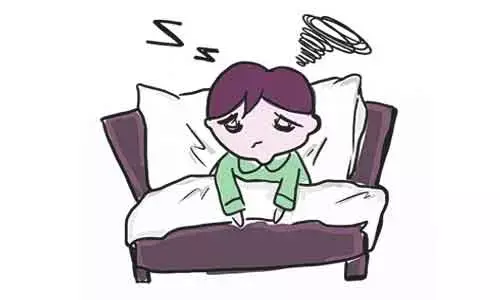- Home
- Medical news & Guidelines
- Anesthesiology
- Cardiology and CTVS
- Critical Care
- Dentistry
- Dermatology
- Diabetes and Endocrinology
- ENT
- Gastroenterology
- Medicine
- Nephrology
- Neurology
- Obstretics-Gynaecology
- Oncology
- Ophthalmology
- Orthopaedics
- Pediatrics-Neonatology
- Psychiatry
- Pulmonology
- Radiology
- Surgery
- Urology
- Laboratory Medicine
- Diet
- Nursing
- Paramedical
- Physiotherapy
- Health news
- Fact Check
- Bone Health Fact Check
- Brain Health Fact Check
- Cancer Related Fact Check
- Child Care Fact Check
- Dental and oral health fact check
- Diabetes and metabolic health fact check
- Diet and Nutrition Fact Check
- Eye and ENT Care Fact Check
- Fitness fact check
- Gut health fact check
- Heart health fact check
- Kidney health fact check
- Medical education fact check
- Men's health fact check
- Respiratory fact check
- Skin and hair care fact check
- Vaccine and Immunization fact check
- Women's health fact check
- AYUSH
- State News
- Andaman and Nicobar Islands
- Andhra Pradesh
- Arunachal Pradesh
- Assam
- Bihar
- Chandigarh
- Chattisgarh
- Dadra and Nagar Haveli
- Daman and Diu
- Delhi
- Goa
- Gujarat
- Haryana
- Himachal Pradesh
- Jammu & Kashmir
- Jharkhand
- Karnataka
- Kerala
- Ladakh
- Lakshadweep
- Madhya Pradesh
- Maharashtra
- Manipur
- Meghalaya
- Mizoram
- Nagaland
- Odisha
- Puducherry
- Punjab
- Rajasthan
- Sikkim
- Tamil Nadu
- Telangana
- Tripura
- Uttar Pradesh
- Uttrakhand
- West Bengal
- Medical Education
- Industry
Treatable sleep disorder common in people with thinking and memory problems: Study

MINNEAPOLIS - Obstructive sleep apnea is when breathing is repeatedly interrupted during sleep. Research has shown people with this sleep disorder have an increased risk of developing cognitive impairment and Alzheimer's disease. Yet, it is treatable. A preliminary study released today, February 28, 2021, has found that obstructive sleep apnea is common in people with cognitive impairment. The study will be presented at the American Academy of Neurology's 73rd Annual Meeting being held virtually April 17 to 22, 2021.
Cognitive impairment includes memory and thinking problems that affect concentration, decision making and learning new things. The risk of cognitive impairment increases as people age.
"Better sleep is beneficial to the brain and can improve cognitive skills. Yet in our study, we found that over half of the people with cognitive impairment had obstructive sleep apnea," said study author Mark I. Boulos, M.D., of the University of Toronto in Canada and member of the American Academy of Neurology. "We also found that those with the sleep disorder had lower scores on thinking and memory tests. Fully understanding how obstructive sleep apnea affects this population is important because with treatment, there is potential to improve thinking and memory skills as well as overall quality of life."
The study involved 67 people with an average age of 73 who had cognitive impairment. Participants completed questionnaires on sleep, cognition and mood. They also took a 30-point cognitive assessment to determine their level of cognitive impairment. Questions included identifying the date and the city they were in and repeating words they had been asked to remember earlier in the test. Scores on the test range from zero to 30. A score of 26 or higher is considered normal, 18-25 signifies mild cognitive impairment and 17 or lower signifies moderate to severe cognitive impairment.
Participants were given at-home sleep apnea tests to determine if they had obstructive sleep apnea. The at-home test uses a monitor to track breathing patterns and oxygen levels during sleep.
Researchers found that 52% of study participants had obstructive sleep apnea. People with the sleep disorder were 60% more likely to score lower on the cognitive test than people who did not have sleep apnea. People with the disorder had an average score of 20.5 compared to an average score of 23.6 for the people without the sleep disorder.
In addition, researchers found that the severity of obstructive sleep apnea corresponded with the degree of cognitive impairment as well as the quality of sleep for participants, including sleep time, how quickly they fell asleep, the efficiency of their sleep and how often they awoke at night.
"People with cognitive impairment should be assessed for obstructive sleep apnea because it can be treated by using a continuous positive airway pressure (CPAP) machine that helps keep the airway open at night," said Boulos. "However, not everyone who tries CPAP chooses to regularly use the therapy, and this may be a bigger challenge to people with thinking and memory problems. Future research should be directed toward determining ways to diagnose and manage the disease that are efficient and easy to use in people with cognitive impairment."
Hina Zahid Joined Medical Dialogue in 2017 with a passion to work as a Reporter. She coordinates with various national and international journals and association and covers all the stories related to Medical guidelines, Medical Journals, rare medical surgeries as well as all the updates in the medical field. Email: editorial@medicaldialogues.in. Contact no. 011-43720751
Dr Kamal Kant Kohli-MBBS, DTCD- a chest specialist with more than 30 years of practice and a flair for writing clinical articles, Dr Kamal Kant Kohli joined Medical Dialogues as a Chief Editor of Medical News. Besides writing articles, as an editor, he proofreads and verifies all the medical content published on Medical Dialogues including those coming from journals, studies,medical conferences,guidelines etc. Email: drkohli@medicaldialogues.in. Contact no. 011-43720751


